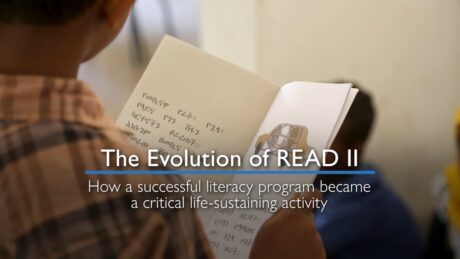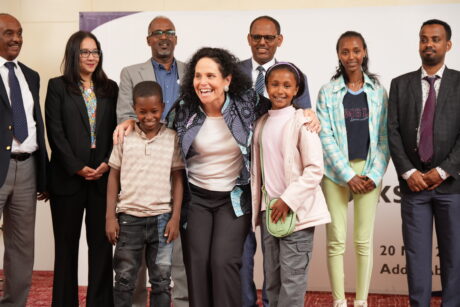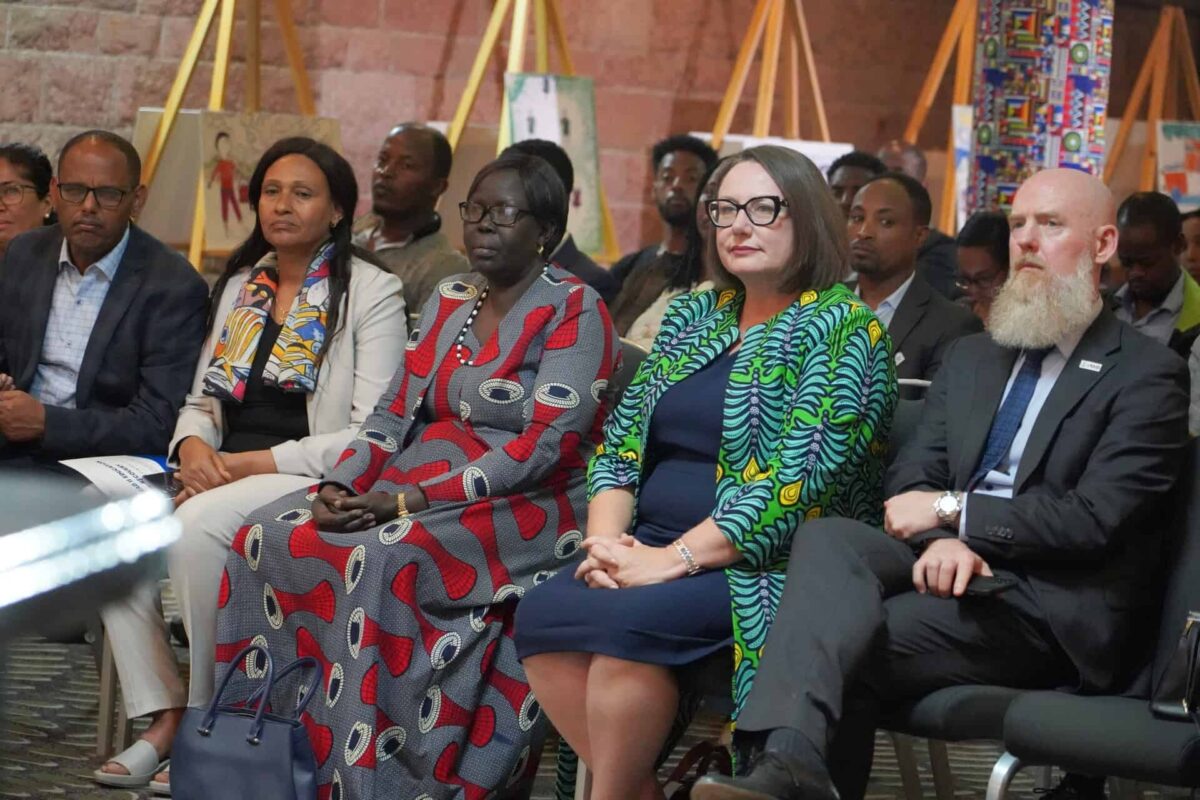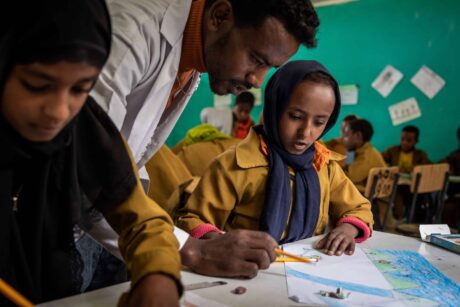Despite compounded challenges of Covid-19 and conflict, USAID’s READ II reading camps bring benefits to Ethiopia’s early readers
The READ II project in Ethiopia seeks to boost the quality of literacy instruction and student support for 15 million children, including those at risk of failure and dropout caused by the cognitive, emotional and physical effects of hunger, violence and displacement.
Starting in 2020, the five-year project faced unforeseen additional challenges starting with the Covid-19 pandemic and then in 2021, the emergence of new conflict in the northern regions of Ethiopia. READ II reading camps are working now with vulnerable and displaced communities in several northern regions.
Funded by the U.S. Agency for International Development and implemented by Creative Associates International, the project works with its core partners Education Development Center and World Vision to better equip teachers with effective early grade reading instruction techniques and materials in seven mother-tongue languages and English, while simultaneously building a culture of reading in the school, home and community.
Reading camps are an important component of READ II’s programming because of the engagement they bring between students, parents and the communities they serve.
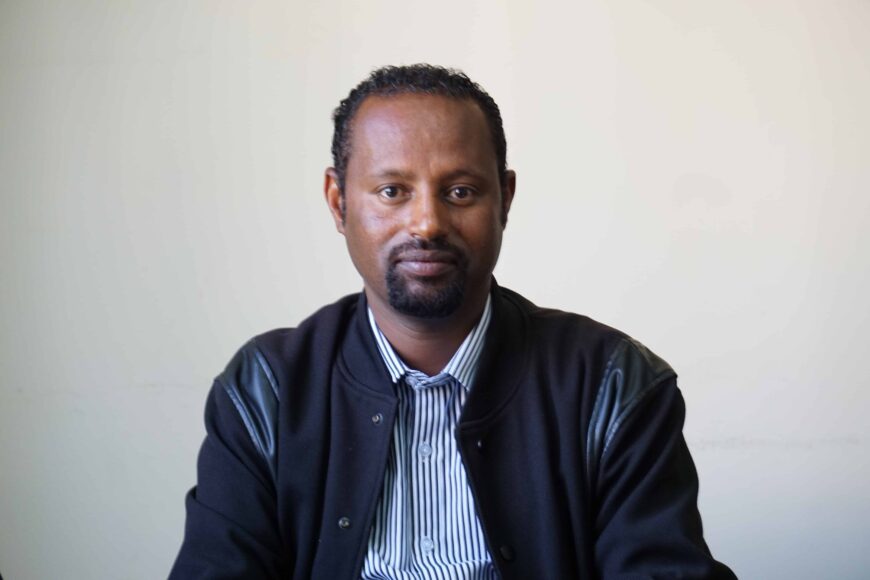
Mastewal Worku is a Senior Advisor on Community Outreach Programs for READ II with extensive experience designing and managing education and life-skills programs. He is an expert on early grade reading education, targeting both the school and community through literacy programming.
At READ II, he is leading and coordinating the community outreach as a representative of World Vision.
In this interview, Mastewal talks about students’ reading through the engagement of parents and the community and discusses the challenges the project faced in rescoping the project during the Covid-19 pandemic.
Describe your role as senior community outreach advisor on READ II.
Working to help children to read addresses the entirety of their lives. One who reads, knows. One who knows, acts. One who acts or works contributes immensely for the development of the human strata.
The community outreach position works toward that and uses the very platform to induce this broader concept in as many as seven regions and 70 districts across Ethiopia. READ II along with its eight local implementing partners have successfully mobilized resources—land, labor, cash, etc.—from the community and government, and established a total of 5,456 reading camps in the six READ II target regions.
A total of 815,600 struggling students from graded one to four have so far benefited from these reading camps and the extra help provided by trained volunteer community literacy leaders. The project has so far mobilized and engaged a total of 12,478 youth and adult volunteers, community literacy leaders to help the children in reading over the weekend for two to four hours a week.
In addition to the challenges related with COVID-19, Ethiopia is facing another the crisis of conflict in the northern region. Hundreds of thousands of internally displaced persons in Tigray, Amhara and Afra regions need support. How can READ II’s reading camps model be used to reach children during this crisis?
Reading camps in both Tigray and Amhara regions are situated within the community and outside the school premises to provide access to extra-learning opportunities that are flexible and informal. Reading camp sessions are designed to augment formal classes. Reading camp volunteer training focuses on using methodologies, such as songs and stories.
Likewise, children in crisis affected areas, such as IDP and refugee camps, need temporary, flexible and informal learning opportunities until the situation stabilizes and they can go back to formal schooling. Like reading camp volunteers, facilitators in temporary learning spaces are encouraged to use methodologies such as songs, games, plays, stories, etc., with children who might be traumatized. Both reading camps and temporary learning spaces need to be furnished with indoor and outdoor games, stationery material and reading books. Reading camps operate on shifting system (morning and afternoon shifts) with the intention of reaching more children. Temporary learning spaces can apply the same to accommodate more children in IDP camps.
How do relationships between the reading camps, schools, parents and village governments contribute to sustaining children’s reading in the community?
Reading does not happen only in schools. Reading happens everywhere, and everywhere includes family and home, and the community and reading camps.
School teachers select and refer struggling children to reading camps for extra help at least two to four hours a week, and family helps them read for an hour a day at homemade reading corner, while local governments such as Parent Teacher Student Associations and Kebele Education and Training Board members facilitate land, labor, cash, etc. for the construction of the Reading camps and the availability of sufficient books for reading in the community. Reading camps are managed by village leaders, and this includes recruitment of volunteer community literacy leaders and safeguarding reading camp materials, such as supplementary reading materials donated by the project.
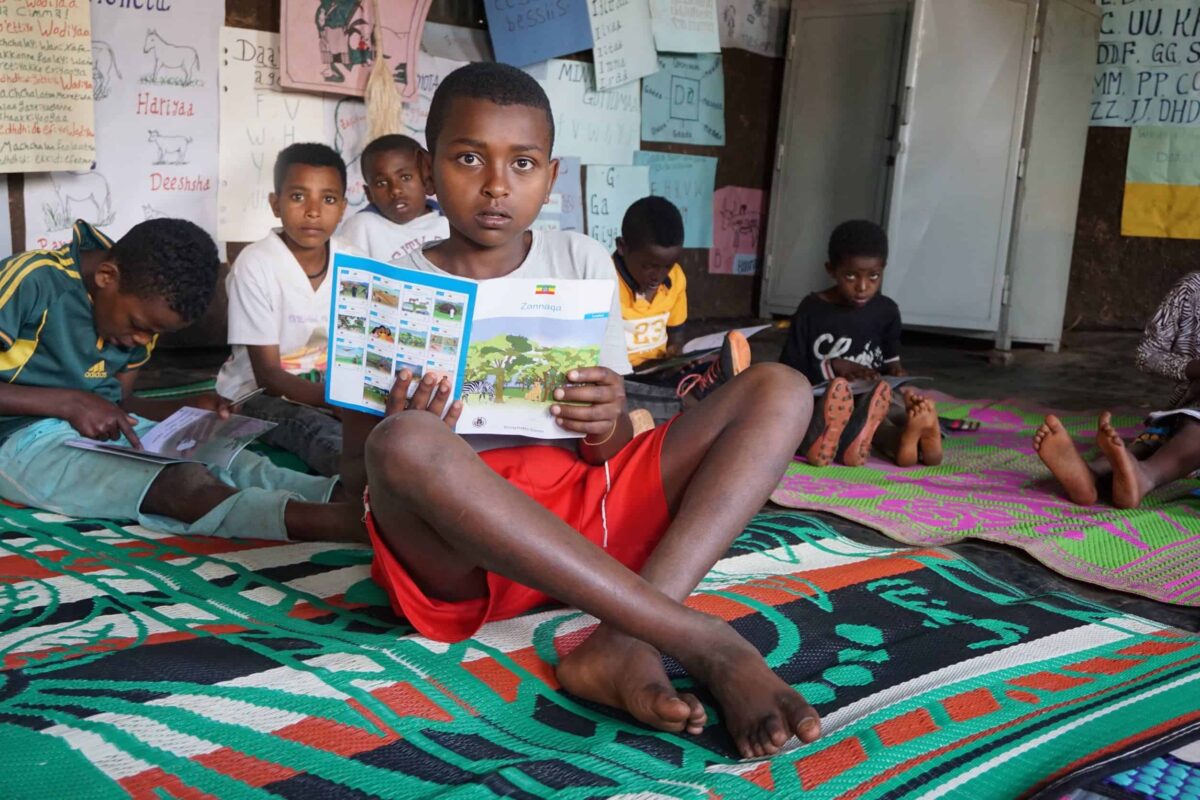
Can you explain the connection between reading camps and schools? How do the reading camps provide mother-tongue teachers and students with additional help to improve reading skills, especially for slow learners?
Reading camps are established primarily to support school-based reading interventions. Schools understand that reading camps are best places to refer struggling children for extra support by trained volunteer, community literacy leaders.
The project trained mother-tongue teachers to continually assess and identify the levels of the children’s reading skills and to share the list with reading-camp volunteer, community literacy leaders to easily identify the support required for each student. Of course, reading camps are not solely for those who have reading impairments but for all the children who need to develop their reading proficiency. Mother-tongue teacher are also trained on the reading camp toolkit to help them support volunteer, community literacy leaders in the preparation and implementation of the weekly reading camp sessions.
Tell us about World Vision’s “Unlock Literacy” model and how it has been adapted under READ II to fit the Ethiopian context.
World Vision’s Unlock Literacy model focuses on helping children improve core skills of reading acquisition: letter knowledge, sounding out words, reading fluency, vocabulary and comprehension.
Reading assessments, teacher training community actions, and teaching learning material are the core components of the model.
Because World Vision International’s role in the READ II project is implementation of the community outreach piece, we picked up and adapted the two components from the Unlock Literacy model: community action and teaching and learning materials. READ II has been implementing the Unlock Literacy project model to create a culture of reading in school, at home and in the community.
